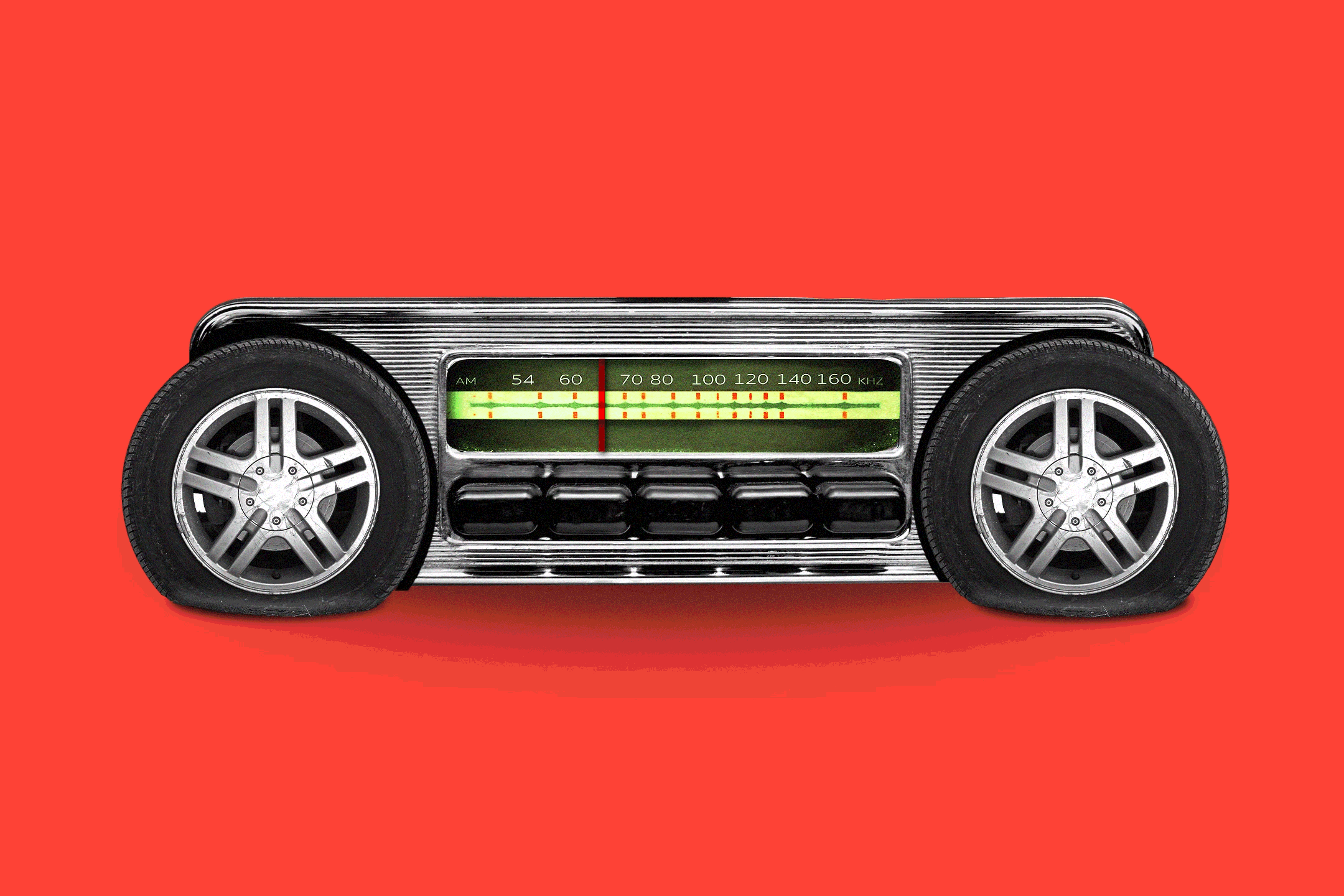FCC to Consider Satellite-Delivered Radio Service : Broadcasting: Signals to cars would be available nationwide. Critics fear the innovation would drive some local stations out of business.
- Share via
WASHINGTON — For the weary road warrior, it’s an all-too-familiar experience: clicking from station to station on your car radio as you lose signals. But the day may be near when radio stations go where you go.
Federal regulators are considering proposals for a new radio service that would be available nationwide, transmitted by satellite. The broadcast radio industry opposes the proposals, arguing they would drive local stations out of business.
The Federal Communications Commission is expected to decide Jan. 12 whether the new satellite-delivered service should move forward.
Under the proposals, whether you are driving through Pine Bluff, Ark., or Los Angeles, you could receive a package of channels--including, for example, the weather or sports or opera--transmitted digitally for a sound more like a compact disc than radio. The signal also would be stronger and less susceptible to interference.
The satellite could even transmit stock quotes or other information to a mobile fax machine.
To get the service, you would need a special radio and antenna. And, under most proposals, you would have to pay a monthly fee.
It’s the audio equivalent of cable television. But unlike cable television or audio services carried on cable systems, the new service is mobile.
The FCC will decide whether to allocate a portion of the public’s airwaves for the service--the first crucial step in bringing it to consumers.
FCC officials would not discuss the proceeding.
If authorized, each new radio service would deliver dozens of channels, which radio stations fear will fragment their audiences--driving advertising rates down and shrinking funds for local programming.
“That’s the biggest threat,” said Lynn McReynolds, spokeswoman for the National Assn. of Broadcasters. “These new services can bring 30 or 60 channels into a market.”
A loss of national advertising would be another threat to local stations, McReynolds said.
Richard Wiley, counsel to CD Radio Inc., the first company to ask the FCC to establish the new service, said the broadcasting industry has a history of trying to block new technology with predictions of financial doom.
“They made the same argument with cable and DBS (direct broadcast satellite), and the courts, the FCC and the marketplace reality disagreed with them,” Wiley said.
Despite the growing use of cassette players and compact disc players in cars, the radio audience continues to grow, he said.
And, the existence of national advertiser-supported radio networks--CBS, NBC, ABC, Mutual, Unistar--and cable radio “has had little if any, measurable impact on stations’ revenues,” according to an economic study CD Radio has sent to the FCC.
The nation’s 9,000-plus commercial radio stations were expected to take in about $10 billion in 1994, a new industry high, said McReynolds of the broadcasters association.
Under a worst-case scenario, CD Radio said the proposed new service could trim as much as 3.1% from local stations’ total advertising revenue.
The broadcasters association says it would be much more than that, but didn’t have an estimate.
CD Radio’s study estimates that by 2004 subscribers to the new radio services could account for between 3% and 10% of all car owners.
Even if regulators clear the service this year, it will take CD Radio and other applicants at least three years to build and launch satellites, Wiley said.
CD Radio expects to charge between $5 and $10 a month for as many as 50 channels. Retail prices of the new radio receivers have yet to be determined.
Other companies that have applied to the FCC to provide the service, known as digital audio radio, are:
* American Mobile Satellite Corp., 22 national channels, supported by subscriptions and advertising.
* Digital Satellite Broadcast Corp., 16 national channels, 16 regional channels, supported by subscription.
* Primosphere, 23 national channels, advertiser supported.
More to Read
The biggest entertainment stories
Get our big stories about Hollywood, film, television, music, arts, culture and more right in your inbox as soon as they publish.
You may occasionally receive promotional content from the Los Angeles Times.









